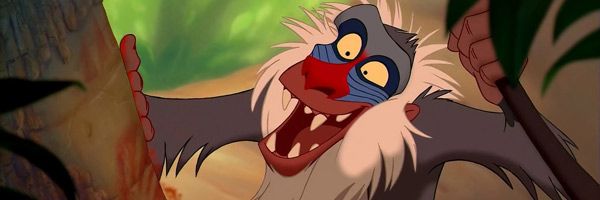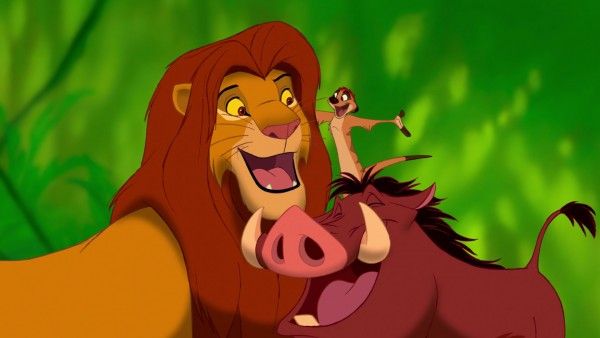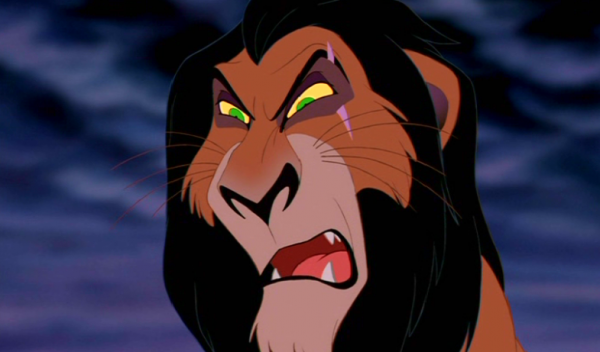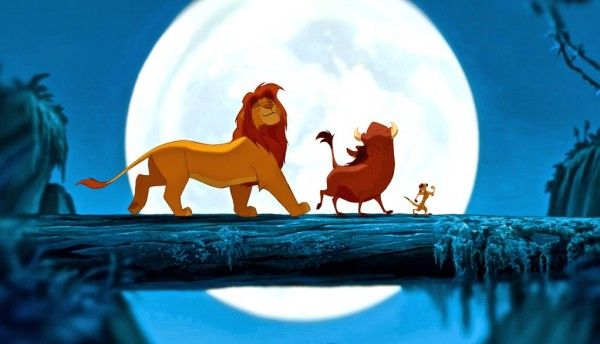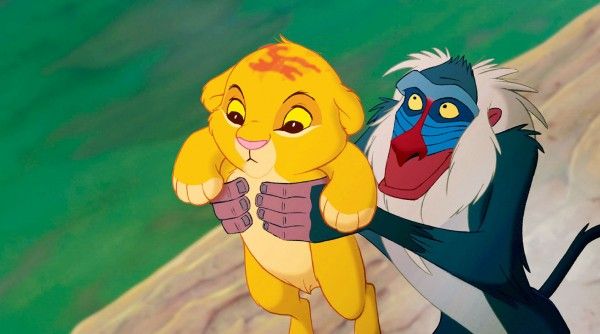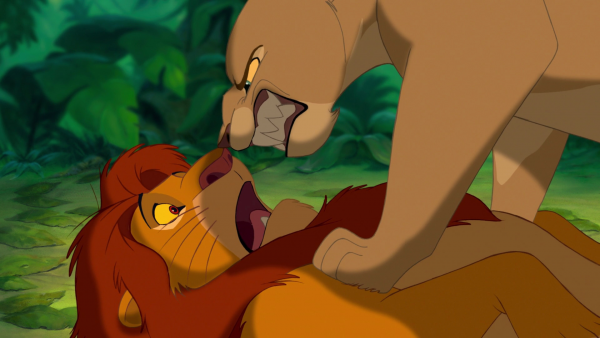It's funny to think that The Lion King, one of the most beloved and celebrated films in the Disney canon was considered something of a risky experiment when it was created. After all, the film isn't just a fan favorite, it went on to win two Oscars, became one of the highest-grossing animated films of all times, and has since launched a Broadway show that's a box office sensation in its own right, a wealth of Disney spin-off properties, and of course, Jon Favreau's upcoming live-action movie, which is poised to
But according to co-director Rob Minkoff, the entire process of making the animated classic was an experiment from start to finish. Ahead of The Lion King's Walt Disney Signature Collection debut on Blu-ray and Digital HD, I sat down with Minkoff and producer Don Hahn to chat about the film and its proud legacy, and a recurring theme throughout the interview was just how much freedom of experimentation they had in the making of the film.
Minkoff explained, citing a prime example of the film's unusual structure -- the death of Mufasa, which doesn't arrive until halfway through the film.
"It's a studio institution, right? Because it's not just a movie, it's the Broadway stage show, it's the sequels, and the new TV series... It goes on and on. So it's interesting. One of the things [Jon Favreau] said, which I found really fascinating, he said to me, "If we made this movie for the first time today, the studio never would have let us kill Mufasa the way we did." Because it's not in the first reel.
So in a movie like Finding Nemo, mom gets killed, but it happens in the first scene, and then it becomes kind of a prologue, but we don't have any emotional attachment. To actually kill as important a character as Mufasa is, in the middle of the movie, I mean literally in the third reel, is not typical. It's just not what you do. You don't necessarily do that. So we had, not by design, but by the fact that it wasn't based on something, and it was kind of an original story, and nobody knew what the rules were. So we said, 'Well, I guess we'll try.'"
That spirit of experimentation ranged far and wide throughout the production of the film, creating an opportunity for the filmmakers to put aside any preconceived notions of the formula for an animated film. The freedom led them to bold strokes, like the aforementioned death of Mufasa, and gave them the freedom to try anything and everything while creating the film.
Minkoff continued,
"Actually, Jeffrey Katzenberg very famously talked about Pocahontas and Lion King were in production at the same time. He said, 'Pocahontas is West Side Story meets Dances With Wolves.' He said, 'Lion King, on the other hand, is an experiment. So we don't really know.' But the fact that he allowed us to make a movie with no real precedent, with no real formula... Because in Hollywood particularly, people love a formula, right? It's a guidepost. If you understand the rules, it's like, that's what you're supposed to do. Suddenly, if you don't have a formula -- everybody wants a formula, but if you don't have it, you really are forced to do something different.
So we had a great ... It was a blessing, really, that the movie wasn't perceived in a way, like a more surefire thing. I think it allowed us to experiment. We tried ... Believe me, I mean, that was the mood of our production was ... We would try everything. Anything and everything. Like, what are we gonna do here? Let's just try, because there's no rules."
Some of those changes were smaller, tonal shifts. For example, wanting to buck against the expectation of the requisite Disney love song, Minkoff and his team decided to have Timon and Pumba, Simba's goofy sidekicks sing the love song. Just one problem. That really rubbed Elton John the wrong way.
Ernie Sabella, the actor who voiced Pumba (and continues to in shorts, sequels, and TV series), recalled, "We sang originally can you feel the love tonight. Nathan and I sang the whole song." He continued with a laugh, "And then I saw a film clip of Elton John saying, 'I don't want my love song sang by a big stinking warthog!'" The creative team scrapped the idea for the satirical slant on the ballad, but that freedom to explore was what led to the final version seen in the film, including the now iconic opening and closing bits from Timon and Pumba.
The Lion King is now available in the Walt Disney Signature Collection on Digital and Blu-ray.

